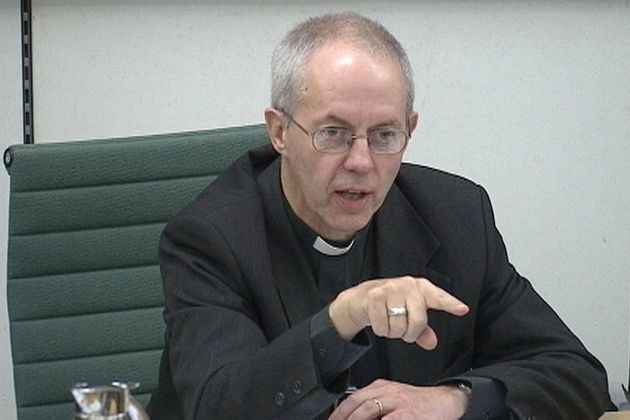Anglican head 'ruffles feathers' with advice on UK economy, banking

Former banking and oil executive the Archbishop of Canterbury, Justin Welby, is attracting much attention for his recent critical comments on the state of the British economy and its banking industry.
He said that Britain is in a depression and needs something major to get out of it.
In an interview on BBC4, part of the national broadcaster, at the weekend Rev. Welby attacked a "culture of entitlement" in London's financial district, "the City."
Asked about his political pronouncements, Welby said: "sometimes feathers get ruffled" and noted that that something major is needed to restore economic confidence in the United Kingdom.
"I think in banking, in particular, and in the City of London, a culture of entitlement has affected a number of areas, not universally by any means, in which it seemed to disconnect from what people saw as reasonable in the rest of the world," he said Saturday on the program the Week in Westminster.
The man who is the highest ranking cleric in the Church of England and the spiritual leader of the 80-million strong Anglican Communion is a member of the British Parliament's cross-party Banking Standards Commission.
In the years before he was ordained a priest in 1992 the 57-year-old Welby was a banker and oil executive. He had served as a bishop for less than a year before being confirmed as the head of the Church of England on February 4.
Welby said that more formal training is needed for banking executives, one of which he was once himself.
"Banks are incredibly complicated things, it is one of the most demanding and complicated areas of management going.
FORMAL TRAINING
"The idea that people can hold hugely responsible positions in them without any kind of formal training seems to a number of us as quite surprising."
Some commentators noted that Welby's recent comments match those made by Bank of England governor Mervyn King earlier this year.
Speaking about Britain, ranked as the world's sixth largest economy and the second in Europe after Germany, he reiterated comments he made last week at a Bible Society debate on ethics in finance in which he said Britain was not in "recession" but "depression."
"Historically depressions have been recognized as lengthy periods in which the economy did not get back to its previous level of activity before a recession set in," said Welby. "So 1929 to 1932 is the great example. There was a big one towards the end of the 19th century.
"We are still significantly below where we were in 2007 in terms of economic activity, of GDP, and that's quite a long time of being below."
One of the archbishop's proposals is the make big banking groups into smaller regional ones.
Patrick Hosking a columnist on The Times (London) said that breaking up a large lender into smaller regional ones will not make money safer
"The Archbishop of Canterbury's musings on finance get more attention than his ecclesiastical views these days.
"He was at it again on Monday, suggesting that at least one big British bank (many assume he meant Royal Bank of Scotland) should be recapitalized and broken up into smaller regional banks. The aim, he said, would be to create new competitors and to make banks more responsive to local needs."
In his interview the Archbishop was asked whether it was part of his mission to try to inject more morality into British financial life.
He said: "My key mission is to lead the Church in worshipping Jesus Christ and encouraging people to believe in him and follow him. That's my mission.
"The Christian Gospel has always had strong social implications and one of them is around the common good and it's one of the key areas in which the Church of England focuses, and so issues of how the City of London, which is so important and so full of very gifted people, how that behaves in relation to the common good is very key, not to the whole thing that I'm about or the church is about, but to how we express the implications of that in day to day life."